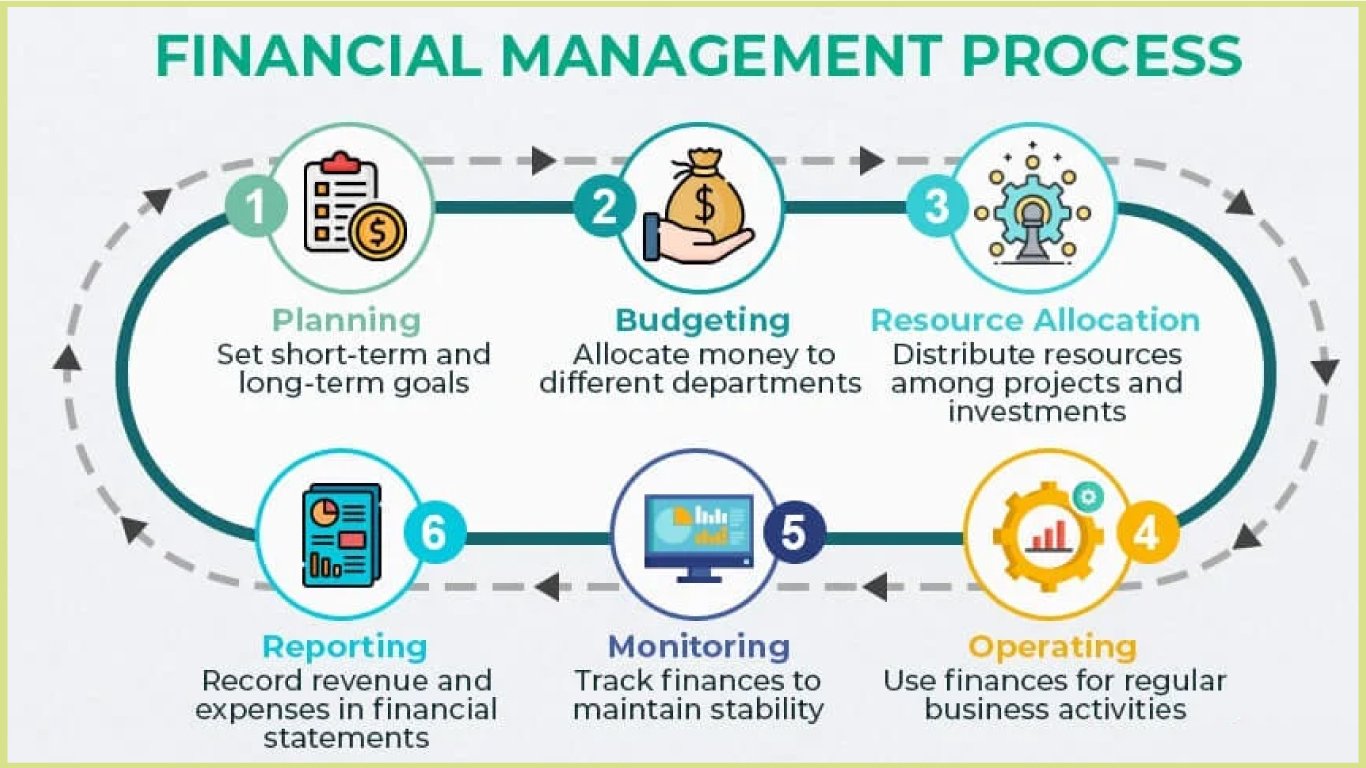Understanding Finance and Financial Management: A Pathway to Economic Success
In today's fast-paced and interconnected world, understanding finance and financial management has become more critical than ever before. Whether you're running a business, managing a household budget, or planning for personal financial growth, the principles of finance guide key decisions that shape both short-term and long-term outcomes. But what exactly is finance, and how does financial management help pave the way to economic success? Let’s dive in.
What is Finance?
At its core, finance is the study and management of money, investments, and other financial instruments. It involves making decisions about how money is raised and allocated, whether it's for personal use, corporate purposes, or government spending. Finance can be broken down into three main areas:
-
Personal Finance: This includes budgeting, saving, investing, and planning for retirement. Individuals make financial decisions based on income, expenses, and life goals, such as buying a home or paying for college education.
-
Corporate Finance: This deals with financial decisions made by businesses. It covers areas like capital investment, managing company profits, financing operations, and strategies to maximize shareholder value.
-
Public Finance: This refers to the way governments manage their revenue, spending, and budgeting to provide public goods and services, manage debt, and influence economic policies.
Each of these areas relies on sound financial principles to ensure efficient and effective use of resources, contributing to overall economic stability and growth.
The Role of Financial Management
Financial management is the practice of managing finances in a way that helps individuals or organizations achieve their financial goals. It is crucial for ensuring that resources are used optimally, risks are minimized, and financial strategies align with overarching goals. In the context of a business, financial management involves:
-
Budgeting and Forecasting: Establishing budgets and making financial forecasts help businesses and individuals plan for the future. By understanding expected income and expenditures, financial managers can guide decisions that lead to profitability and financial health.
-
Investment Decisions: Sound financial management includes deciding where to invest resources. Businesses make investment choices based on projected returns and the level of risk. Similarly, individuals must choose investments that align with their financial goals and risk tolerance.
-
Capital Structure: One of the critical aspects of financial management is determining how a business will raise funds. This could involve debt financing (loans, bonds) or equity financing (selling shares). A strong capital structure enables a business to maintain financial stability and growth potential.
-
Risk Management: Financial managers must evaluate and mitigate financial risks, including market volatility, interest rate fluctuations, and credit risk. By identifying potential threats to financial stability, businesses and individuals can take proactive steps to avoid significant losses.
Why is Financial Management Essential?
-
Maximizes Resources: Proper financial management ensures that money is spent wisely, whether it’s on daily expenses, capital investments, or future growth opportunities. Efficient resource allocation helps individuals and businesses reach their goals faster and with fewer financial hiccups.
-
Prepares for the Future: Financial management isn’t just about short-term planning; it’s also about long-term financial health. By anticipating future needs and risks, individuals and businesses can prepare better for challenges and opportunities that lie ahead.
-
Ensures Financial Security: With strong financial management, the risk of running out of money or facing a financial crisis is minimized. It allows for building emergency funds, preparing for unexpected situations, and fostering growth opportunities in the future.
-
Increases Profits and Wealth: For businesses, effective financial management directly impacts the bottom line. From controlling operational costs to making profitable investments, sound financial practices help businesses achieve sustainable profitability and growth.
-
Promotes Economic Growth: On a larger scale, when businesses manage finances effectively, it contributes to broader economic growth. Profitable companies are able to hire more employees, reinvest in innovation, and contribute to the economy through taxes and social contributions.
How Financial Management Contributes to Economic Success
Achieving economic success—whether at an individual or organizational level—requires a firm understanding of financial management principles. Here's how mastering financial management can pave the way for success:
-
Increased Financial Literacy: Understanding how money works, how investments perform, and the importance of budgeting fosters financial literacy. This knowledge empowers individuals and businesses to make informed decisions, avoid debt traps, and build wealth over time.
-
Better Decision-Making: Financial management equips individuals and companies with the tools and data necessary for making smart decisions. By analyzing cash flow, returns on investments, and future projections, better business strategies and personal financial choices emerge.
-
Sustainability: Effective financial management isn’t just about making money in the short term; it’s about building sustainable growth. A company that balances profits with social responsibility, or an individual who saves consistently for retirement, is setting up a future with economic stability.
-
Minimizing Financial Stress: For individuals, knowing how to manage debt, save for goals, and invest wisely can reduce financial stress and improve mental well-being. For businesses, managing cash flow and reducing unnecessary expenditures ensures a steady and predictable financial environment.
Conclusion
Understanding finance and financial management is not just reserved for the wealthy or business leaders—it's a critical skill for anyone who wants to achieve economic success. Whether you’re managing a corporate budget or planning for your personal future, mastering financial principles enables you to make informed decisions, minimize risk, and create opportunities for growth.
In an increasingly complex economic world, financial knowledge is power. By becoming financially literate and practicing good financial management, you can navigate the ever-changing landscape of personal and business finance to secure a prosperous future for yourself and contribute to broader economic success.
